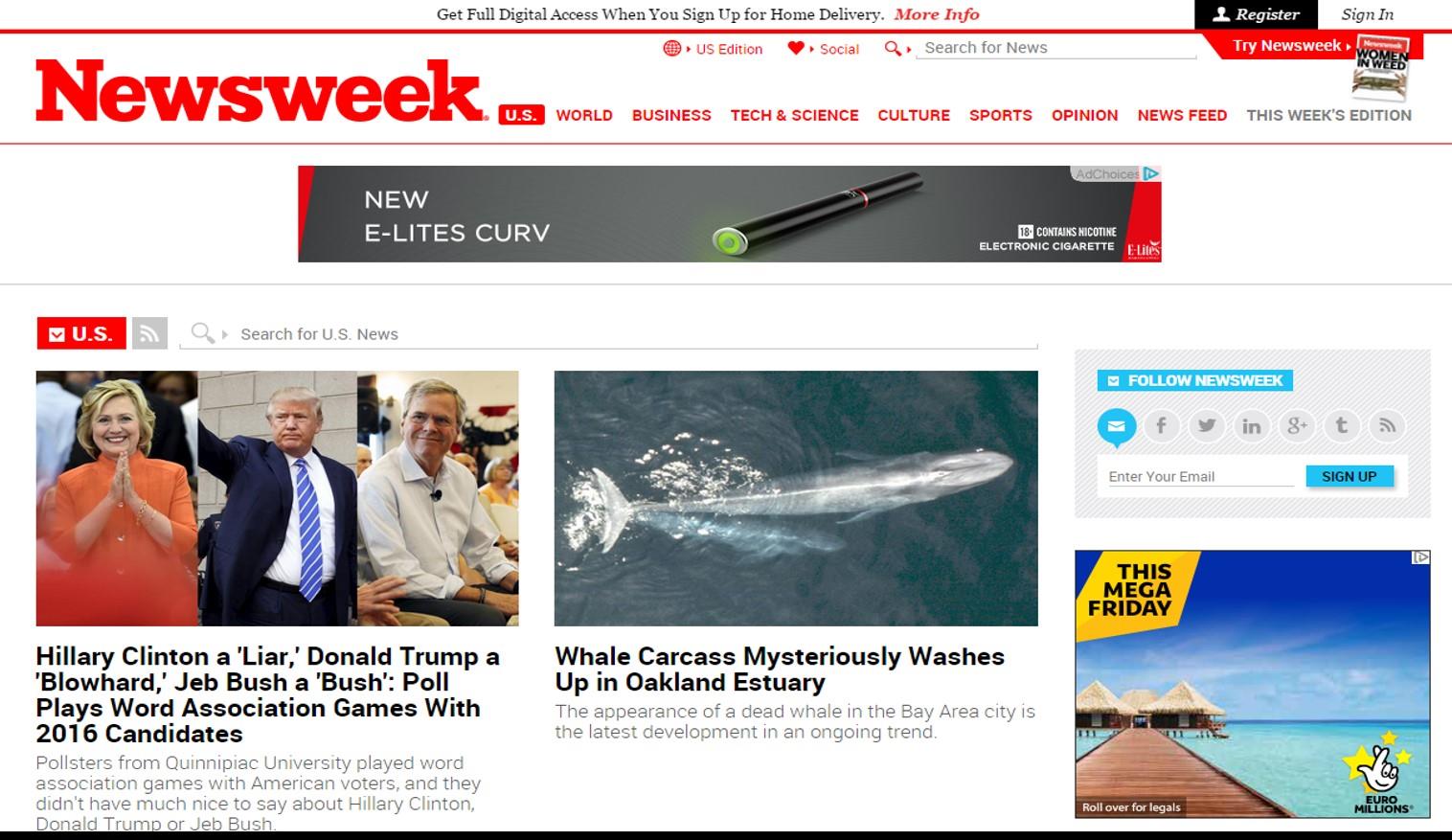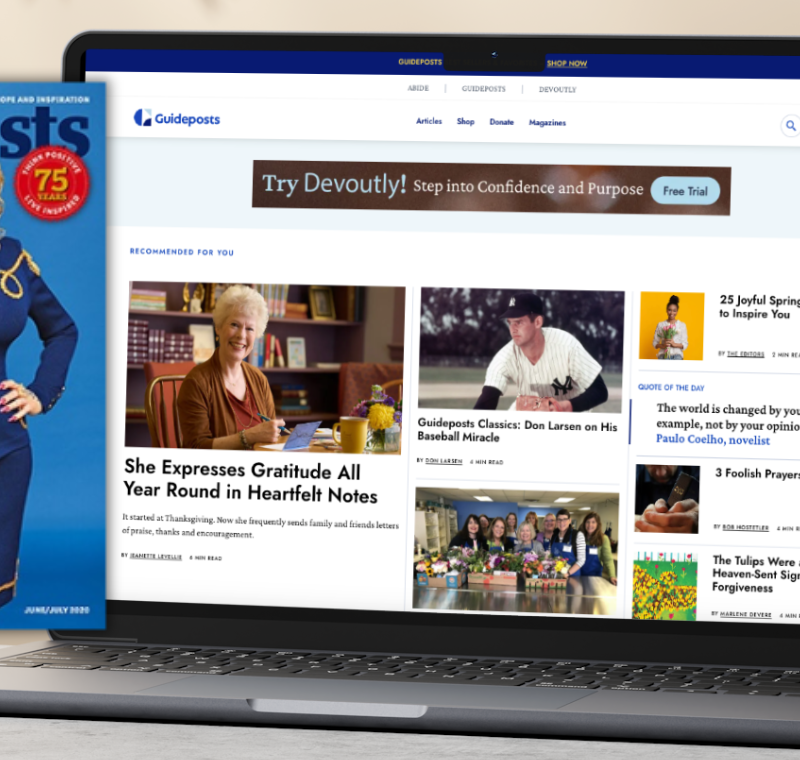How a new business model put Newsweek back in business
To say that Laurie Benson, principal affiliate at global media services and advisory firm Empirical Media, is bullish about the wealth of opportunities digital transformation has brought to media brands, is probably an understatement. When she analyses the new media environment she sees “an unlimited supply of eyeballs” creating “the greatest opportunity ever for marketers”.
In fact the only thing Benson finds surprising about the modern media environment is how slow the internal workings of traditional media have been to embed a digital- and mobile-first mentality into their editorial processes.
Her simple philosophy that “digital is a mass product and print is premium” played a big part in the fact that three months after IBT Media relaunched a print edition of the American news weekly Newsweek in March last year it was Benson and Empirical Media they entrusted to seek out foreign licensing agreements for both the Newsweek print and digital editions. The company’s previous owner, The Newsweek Daily Beast Company abandoned print editions at the end of 2012.

Above: Newsweek.com screengrab
Repositioning Newsweek
Benson explains that Newsweek’s position of strength is embedded in the fact that a strong global brand took the opportunity to rethink its business model. “The brand portfolio is now digital first and the print magazine is a premium product with a premium price. The circulation is intentionally smaller and the digital platform is the mass medium.”
This, she says, creates new opportunities for potential partners because those who would have been hesitant to look at the print marketplace now have a viable option for a powerful print product working in tandem with the digital offering.
Despite the larger online presence, the Newsweek brand remains colourful and resonates well with global markets. Outside of the US and UK – “where news brands can be quite jaded” – she finds markets with “a healthy respect for the prestige and power of good brands”.
While Newsweek is now healthy – and profitable – Benson also references early successes with licensed editions of Newsweek in Korea, Pakistan, Poland, Japan and Latin America. They have also recently launched Newsweek Serbia while editions of Newsweek Czech Republic and Newsweek Middle East will be out in early November. Shortly before the FIPP World Congress in Toronto in October, she hopes to announce more partnerships.
These accomplishments will put her in good stead at FIPP’s Worldwide Media Marketplace (WMM) where her priority will be to further promote Newsweek’s licensing efforts globally. “While we already have successful ongoing licensing experiences there are some key markets where we are hoping to find partners. We are looking at new markets in central and eastern Europe, central Asia and Africa where many countries are experiencing new democracies and have goals to become more prominent on the global stage. This creates the need for a brand like Newsweek in these marketplaces and an opportunity to position them as a player in the global world.”
The FIPP World Congress takes place from 13-15 October (the WMM is on 13 October and the main Congress programme on 14 and 15 October). See more on the FIPP Congress website (fippcongress.com).
Digital first
With a new balance struck between online and print, rethinking the content strategy was inevitable. “The printed Newsweek now has a much more evergreen nature to it – you have a reason to keep it on your coffee table for a longer period of time. The digital product allows us to use it in the best way for each platform: for current news as well as an opportunity to accent longer form journalism.”
But it’s not just about Newsweek, as Benson explains, for any title it is crucial to embed a digital-first mentality into the editorial approach. “This is critical. Rather than having an editor curate content with the digital team trying to think of ways to deal with it, the digital team should come up with the ideas and make the content stronger at the point of origination. This is something that is still happening too slowly.”
Pushing this paradigm shift is an important part of her consultancy work which sees her work with a number of media brands in the US and the UK. “We also need companies to understand what their tolerance is for letting their business evolve and to enable them to take advantage of digital opportunities and monetise on it.”
History repeats
New platforms should not be seen as anything more than vehicles for content distribution. “It’s really just history repeating itself. New distribution platforms can now reach very large audiences which creates even bigger opportunities for content owners.”
But within this larger game there is one fundamental rule. “No brand can be bigger than the way the consumer wants to consume content.” Brands should therefore participate in each of the new distribution opportunities. She feels that those who pretend they can control the distribution of content in today’s media environment will commit business suicide.
“Companies should rather be looking at how to build the best business model around each and every new distribution platform. I advise media companies on how to change business models and manage international expansion – and income streams – within this changing environment.”
To try to coax Benson into committing to which platform will become the most important in future (we suggested video, content on wearables and audio in automobiles) is futile. The answer is simple: “all of the above”.
“You may have been a print brand, but you need to be in video too. You may have been a video brand but you also need to use the opportunities presented by print… Too many media groups think that their legacy media is dead and that they now have to only focus on the new media. But a portfolio should live across a multitude of platforms and be distributed across all of them – the ones already known and even those we don’t know already”.
More about Laurie Benson:
An early member of the CNN team, Benson went on to be a member of the launch teams of both HGTV and Oxygen Media, two of the most successful television networks in recent history, cementing her track record of achieving revenue goals and building businesses for profitability. Benson served as Publisher for Time Magazine and Time.com in Europe/Middle East and Africa, where she garnered experience and contacts throughout the region.
She then led the commercial activities of Bloomberg’s Publishing and Digital operations in Europe, the Middle East and Africa, launching a new luxury business as well as re-introducing Bloomberg Businessweek to the international marketplace before joining Empirical Media as principal affiliate and international consultant.
More like this
Newsweek Europe redesigns mag but ‘future must be online’
‘This is the future of cross-border licensing’ – John Cabell
Axel Springer’s Hans Hamer: This is how Auto Bild stays front of the grid








